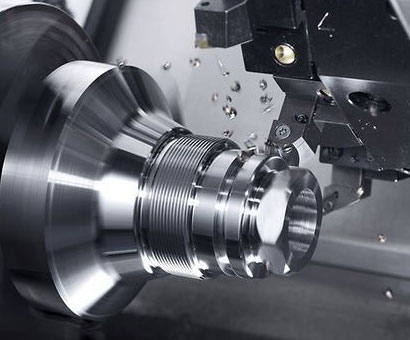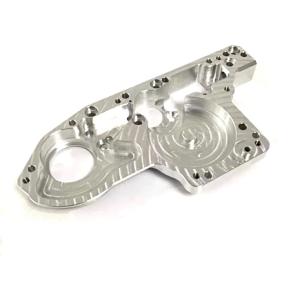CNC Milling Titanium Parts

Titanium is a transition metal with a silvery-white metallic luster and an atomic number of 22. Due to its low density (falling between aluminum and steel), high strength, excellent corrosion resistance, and good performance at both high and low temperatures, titanium is often alloyed with elements such as aluminum, vanadium, and iron to further enhance its properties. The immense potential of titanium as a material is now fully recognized, and its range of applications continues to expand. As an ideal material for CNC milling, titanium components are essential in various industries, including aerospace, medical, chemical manufacturing, construction, automotive (both four-wheeled and two-wheeled vehicles), and consumer products. Moreover, CNC milling of titanium can be classified into different series based on its grades and alloy types, tailored to specific applications. Below are the various properties and uses of titanium.
Features and Applications of Different Titanium

Ta1 and Ta2: These titanium grades have a high titanium content, and their mechanical and chemical properties are similar to those of stainless steel. While their strength is lower than that of titanium alloys, they exhibit good plasticity, making them easy to process and form. Their stamping and welding performance is good, and they have stronger corrosion and oxidation resistance than stainless steel. However, their heat resistance is lower than that of stainless steel.
Ta1 and Ta2 are mainly used for stamping parts and corrosion-resistant structural components with a working temperature below 350°C, where low stress but high plasticity is required. Typical applications include aircraft skeletons, ship pipelines, and ion pumps. Ta1 is typically used in industries requiring high formability, while Ta2 is the most widely used.
Tc4: Tc4 titanium alloy exhibits excellent overall mechanical properties, which can be enhanced through heat treatment, forging, stamping, and welding. It has high strength at room temperature, good heat resistance within the temperature range of 150–500°C, excellent low-temperature toughness, and good corrosion resistance. Tc4 is the most widely used alloy material among the Tc series.
Tc4 is suitable for long-term use in parts operating below 400°C, low-temperature parts such as containers and pumps, military components, easy-to-use equipment, outdoor parts, and parts requiring high strength.
About the CNC Milling Material – Titanium
Titanium Grade 5 is the strongest titanium alloy, offering excellent corrosion resistance and weldability. It is often chosen over other materials, such as steel, due to its ability to withstand both high and subzero temperatures. Common applications include aerospace fasteners, wind turbine blades, engine components, sports equipment, and marine applications.
Titanium has a density of 4.506-4.516 grams per cubic centimeter at 20°C, which is higher than aluminum but lower than iron, copper, and nickel. However, its specific strength is among the highest of all metals. Titanium has a melting point of 1668±4°C, a latent heat of fusion of 3.7-5.0 kcal/g-atom, a boiling point of 3260±20°C, and a latent heat of vaporization of 102.5-112.5 kcal/g-atom. Its critical temperature is 4350°C, and its critical pressure is 1130 atmospheres.
Titanium has poor thermal and electrical conductivity, similar to or slightly lower than stainless steel. However, titanium also exhibits superconductivity, with the superconducting critical temperature of pure titanium ranging from 0.38 to 0.4K. At 25°C, the heat capacity of titanium is 0.126 cal/g-atom·°C, the enthalpy is 1149 cal/g-atom·°C, and the entropy is 7.33 cal/g-atom·°C. Titanium is a paramagnetic material with a magnetic permeability of 1.00004.
Titanium exhibits excellent plasticity, with the elongation rate of high-purity titanium reaching 50-60%, and the section shrinkage rate reaching 70-80%. However, its strength is relatively low, making it unsuitable for use as a structural material in certain applications. The presence of impurities, especially interstitial impurities such as oxygen, nitrogen, and carbon, significantly affects its mechanical properties. These impurities can greatly enhance the strength of titanium but reduce its plasticity. The optimal mechanical properties of titanium as a structural material are achieved by strictly controlling impurity levels and adding appropriate alloying elements.
| Yield Strength | Elongation at Break | Hardness | Density | Max Temp |
| 120,000 PSI | 10% | Rockwell C30 | 0.16 Ibs / cu. in | 3000°F |

Why Choose Our CNC Milling Titanium Service?
1.We have over 70 precision CNC machining equipment of various types, including three-axis, four-axis, and five-axis machining centers, as well as drilling and tapping centers, ensuring high precision in every process.
2.We offer fast turnaround times, standard packaging, and on-time delivery services.
3.We obtained ISO9001:2008 and TS16949 quality management system certifications in 2015 and received the IATF quality system transition audit certification in 2017.
4.We adhere strictly to the specified dimensions in the drawings, ensuring that the dimensions of the parts are consistent with the design.
5.We provide precision titanium parts with excellent dimensional stability and strict tolerance control.
6.Our products are widely used in industries such as medical, aerospace, aviation, engines, and military applications.





